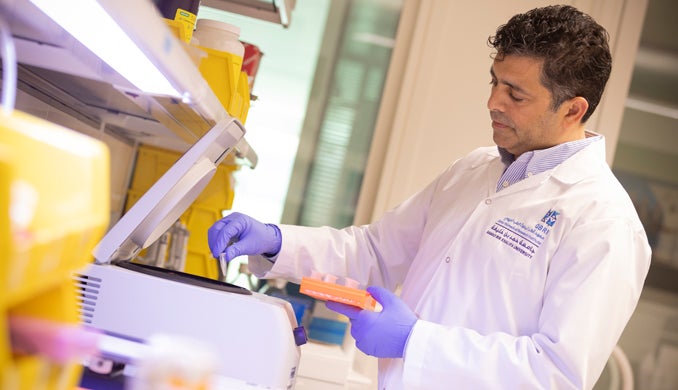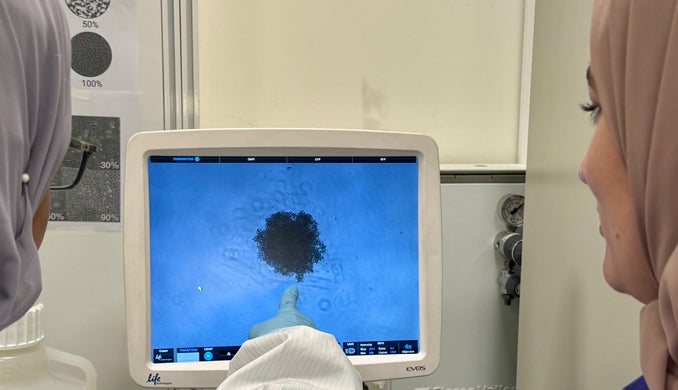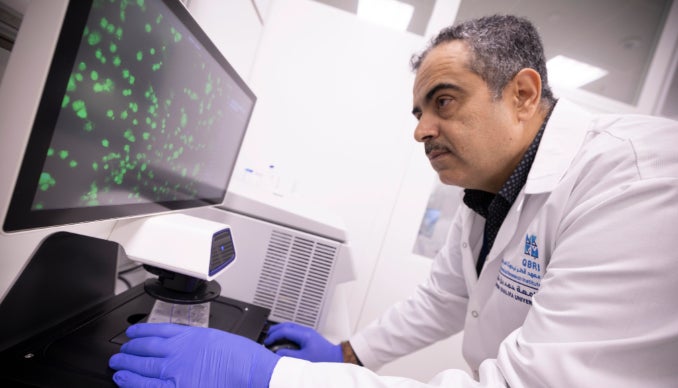By Dr. Nehad Alajez

Breast cancer is a worldwide public health concern and ranks as a leading cause of mortality among women globally. The intricate nature of this disease has prompted relentless research efforts aimed at comprehending its diverse manifestations and discovering effective therapeutic strategies. A recent investigation focusing on breast cancer cases originating from the Middle East and North Africa (MENA) region provides new insights into the malady in this geographical area.
Breast cancer is a multifaceted ailment that manifests differently from one individual to another. Scientists classify breast cancer based on specific markers present on tumor cells, which encompass hormone receptors (HR), including estrogen receptor (ER) and progesterone receptor (PR), as well as Human Epidermal Growth Factor Receptor 2 (HER2), a protein that plays a crucial role in the growth and division of cells expression. The HR+ subtype is characterized by the presence of either ER or PR on their surface. It also constitutes the most prevalent manifestation of breast cancer and generally exhibits a more favorable prognosis. The HER2+ subtype represents tumors with an increased level of expression of HER2 protein. While HER2+ breast cancer may be more aggressive it can be specifically targeted with certain treatments. On the other hand, Triple Negative Breast Cancer (TNBC) lacks estrogen, progesterone, and HER2 receptors, rendering it challenging to treat due to its resistance to hormonal therapies or HER2-targeted drugs.
The MENA region has witnessed an increase in breast cancer cases over the past years, which may be attributed to heightened awareness and subsequent rise in diagnoses as more people seek testing. The nature of the disease often diverges from those seen in other parts of the world. Previous investigations reported breast cancer patients from the MENA to be frequently presented at a younger age and at a more advanced stage. To gain deeper insights into these disparities, a pioneering study was conducted by researchers in Qatar involving the scrutiny of genetic information (mRNAs and microRNAs) derived from breast cancer tissue samples collected from 96 patients in collaboration with Hamad Medical Corporation (HMC).
The study highlighted close similarities between HR+ and HR+HER2+ tumors. Similarly, there was a large similarity between HER2+ tumors and TNBC. Understanding these similarities holds promise for the development of targeted treatment strategies. Additionally, the study noted breast cancer's molecular profiles exhibited variations contingent upon factors such as molecular subtypes, tumor grade, patient age, and ethnicity (MENA vs. non-MENA). This underscores the fact that breast cancer is a heterogeneous disease, with no one-size-fits-all approach.
The research has also identified intricate networks of microRNAs, which are diminutive molecules that exert control over gene expression. These microRNAs emerged as pivotal players in shaping the genetic makeup of breast cancer. The study suggested a pivotal role for microRNAs in regulating various pathological features of breast cancer.
The researchers combined their new discoveries with what was already known to identify new potential targets for therapy. Some of these targets are currently being studied for different types of cancer. However, for the other targets, more research is needed to develop specific treatments tailored to them. The study also identified genetic signatures capable of forecasting a patient's likelihood of experiencing a recurrence following treatment, based on data from the MENA study.
Dr. Alajez, Principal Investigator, Cancer Research Center, Qatar Biomedical Research Institute, and lead investigator on the study, commented: “This study imparts invaluable insights into breast cancer within the MENA region. It not only enhances our comprehension of the distinctive facets of the disease but also illuminates novel avenues for further research and therapeutic interventions. By concentrating on the genetic underpinnings of breast cancer in this specific region, researchers aspire to enhance the care and outcomes of patients not only in MENA but also worldwide.”
Breast cancer remains an enduring challenge, but investigations like this represent significant strides towards the discovery of improved treatments.










